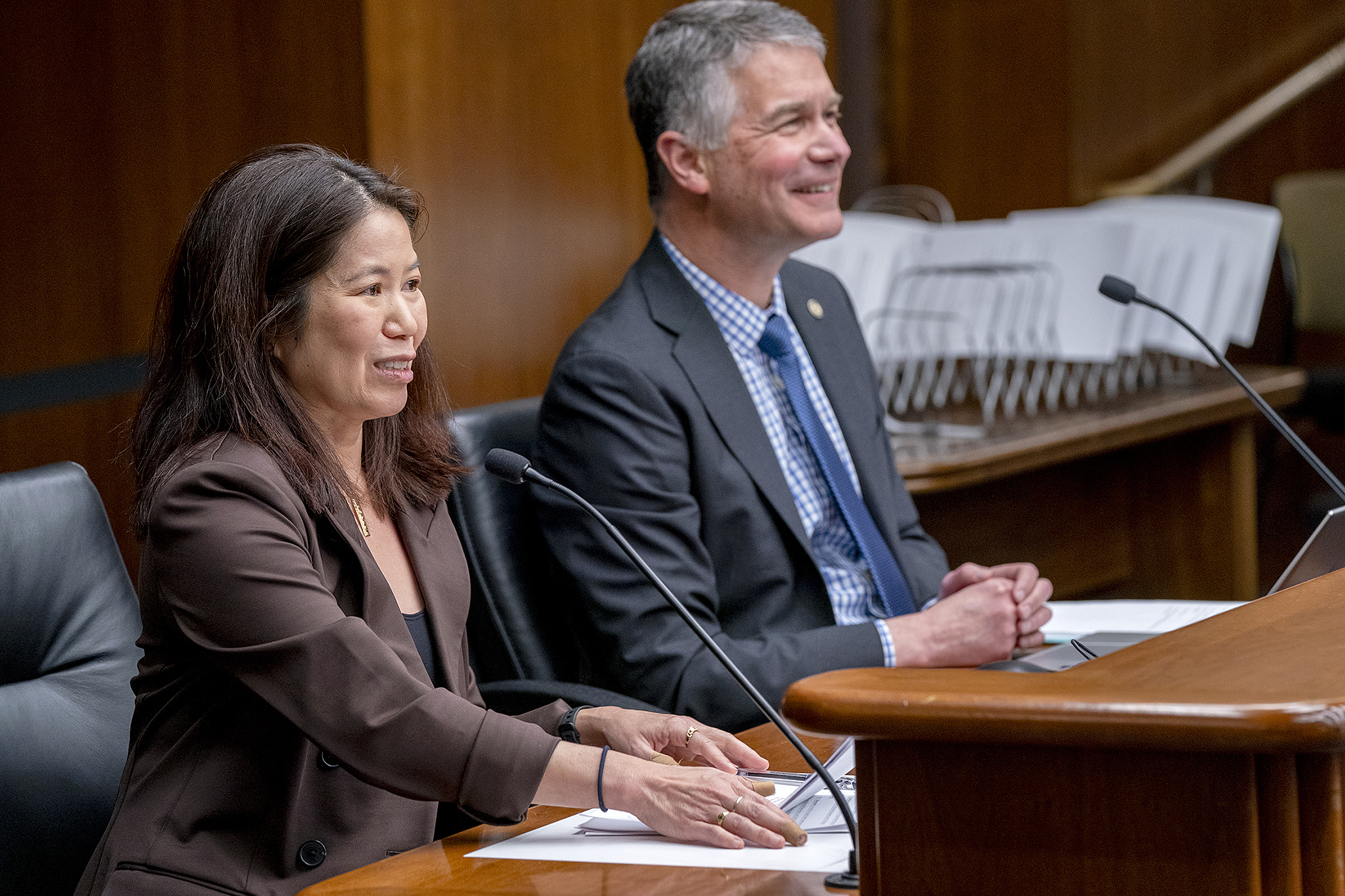Bill could boost technologies that relieve electric grid congestion — but some question need for mandate

Should your electric utility get a GET?
That’s the industry term for “grid-enhancing technologies.” They’re hardware or software technologies that allow for expanded capacity and flexibility of an electricity transmission system at what advocates say is a relatively low cost. Think of them as something like a plumber’s snake that dislodges a clog in your electricity transmission system.
Per HF3704, a utility doing business in the state that owns more than 500 miles of transmission lines would be required to identify major points of congestion on its grid and analyze if deploying a GET — such as sensors, power flow control devices or analytical tools — could move them toward less costly electricity sources and save ratepayers money.
Sponsored by Rep. Larry Kraft (DFL-St. Louis Park), the bill, as amended, was laid over by the House Climate and Energy Finance and Policy Committee Wednesday for possible inclusion in a climate and energy bill.
“We’ve all heard that we need to build more transmission lines,” Kraft said. “But these projects cost tens or even hundreds of millions of dollars and take years to build. GETs often cost hundreds of thousands of dollars, with deployment times measured in months. But they can increase capacity by 10 to 40%.
“MISO, the Midcontinent Independent System Operator — which operates our electric transmission system in a large part of Minnesota and portions of 15 states in the Midwest — has the highest grid congestion costs of any electricity market in the country. This impacts costs to Minnesota ratepayers.”
The bill would require larger transmission owners to submit plans to the Public Utilities Commission for using a grid-enhancing technology to relieve congestion. That list is currently limited to the state’s three investor-owned utilities — Xcel Energy, Minnesota Power and Otter Tail Power — and its largest generation and transmission cooperative, Great River Energy.
Stacey Fujii, government affairs director for Great River Energy, said that her cooperative completed a study in 2023 that recommended 19 projects to facilitate congestion relief in Minnesota, that several have been put into service and that the remainder will be put into service by the end of 2025.
“Great River is already utilizing grid-enhancing technologies,” Fujii said. “We have done all these things without a mandate.”
Both Rep. Chris Swedzinski (R-Ghent) and Rep. Marion Rarick (R-Maple Lake) questioned why a mandate was necessary if utilities are already implementing these technologies. Kraft replied that the bill would accelerate this process and save ratepayers money.
Swedzinski unsuccessfully offered an amendment that would have required comparing the cost of removing the source of the congestion to the cost of implementing a grid-enhancing technology.
Last year, Minnesota committed to using exclusively carbon-free energy sources by 2040. Some industry experts have identified transmission congestion as among the biggest hurdles to getting there.
Related Articles
Search Session Daily
Advanced Search OptionsPriority Dailies
Speaker Emerita Melissa Hortman, husband killed in attack
By HPIS Staff House Speaker Emerita Melissa Hortman (DFL-Brooklyn Park) and her husband, Mark, were fatally shot in their home early Saturday morning.
Gov. Tim Walz announced the news dur...
House Speaker Emerita Melissa Hortman (DFL-Brooklyn Park) and her husband, Mark, were fatally shot in their home early Saturday morning.
Gov. Tim Walz announced the news dur...
Lawmakers deliver budget bills to governor's desk in one-day special session
By Mike Cook About that talk of needing all 21 hours left in a legislative day to complete a special session?
House members were more than up to the challenge Monday. Beginning at 10 a.m...
About that talk of needing all 21 hours left in a legislative day to complete a special session?
House members were more than up to the challenge Monday. Beginning at 10 a.m...